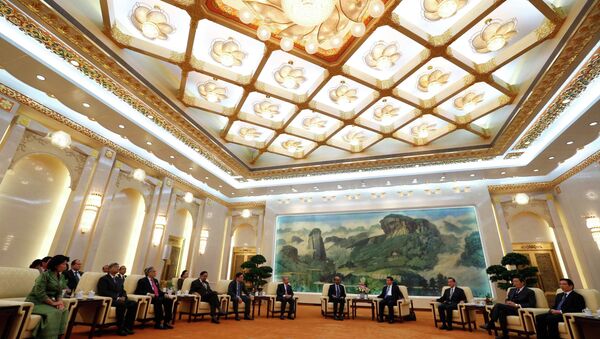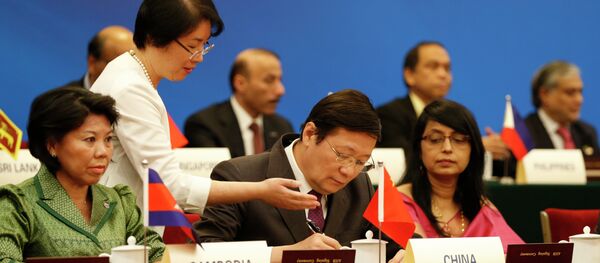"At the 2014 BRICS summit in Fortaleza, Brazil, the five heads of state declared bluntly, "We remain disappointed and seriously concerned with the current non-implementation of the 2010 International Monetary Fund reforms, which negatively impacts on the IMF's legitimacy, credibility and effectiveness," the historian pointed out.
Indeed, in 2010 China, Brazil and other fast-emerging countries proposed a reform pledging to double the funds of the IMF in exchange for greater voting rights for such states as China, Russia, India, Brazil and some other countries.
Remarkably, Washington retains a blocking veto share of votes and "is holding on like a pit bull to the old bylaws," the researcher noted.
However, the US Congress refused to reconsider the established status quo of the US-led Bretton Woods institutions and blocked the reform.
Thus far, China and other fast-growing economies decided to create an entirely new global monetary architecture with the Asian Infrastructure Investment Bank (AIIB) at the centerpiece.
The fact that the China-led initiative received global support has shown the impotence of the US-dominated Bretton Woods system.
As BRICS threatens to become an independent global actor, Washington has recently tried to carry out "its usual Color Revolution organized opposition protests," this time against Brazilian President Dilma Rousseff. Alas, it seems such a method is not working as it used to, the researcher pointed out.
Indeed, the AIIB and the BRICS Development Bank poses the greatest threat to the American dollar system and Washington's control over global financial flows since 1944. However, "peace and cooperation is a far more useful way to resolve affairs among civilized nations," the author emphasized.



